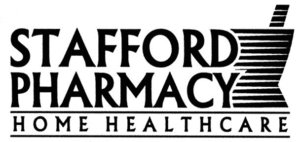When you have a common infection such as a cold, or when your child is sick do you go to the doctor expecting a prescription? Or, do you go to find out if you need one? Believe it or not, your expectations influence whether or not you will receive a prescription for antibiotics.
Let’s take look at the common cold. Colds make us feel terrible, causing sore throat, sneezing, stuffy/runny nose and cough. Even worse, they can last for up to 2 weeks with a dry cough possibly lasting longer. Adults get an average of 3 colds per year, while children have an average of 7. No one likes to be sick or have a sick child and many people head to the doctor’s office looking to be cured with a prescription for an antibiotic. The problem is, antibiotics kill bacteria and the common cold is caused by viruses. Therefore, antibiotics will not cure the common cold. In fact, instead of making you feel better they can cause side effects like stomach upset and diarrhea and can make you feel worse. Antibiotics can also cause serious side effects such as tendon rupture in extremely rare cases. If you are thinking to yourself, that can’t be true because the last time I got a cold I took antibiotics and they made me feel better. The truth is the antibiotics didn’t make you feel better, you would have felt better without them. By the time you went to the doctor, you had probably already had the cold for 3 days, and your pharmacist told you that the antibiotics wouldn’t start helping for 2-3 days. That means, on day 6 you started to feel better while taking antibiotics. But, the common cold lasts an average of 7-10 days so you would have started to feel better even without the antibiotics.
You may be wondering why the doctor gave you a prescription for antibiotics if it wasn’t going to help you, and could in fact harm you. Studies have found the following explanations for why you may receive a prescription for an antibiotic, even if you don’t need one:
- The doctor believes the patient is expecting a prescription and they don’t want to jeopardize their relationships with the patient, therefore they write a prescription to make the patient happy
- They feel if they don’t write a prescription, you will see another doctor who will
- They are rushed and don’t have time to explain why an antibiotic won’t help
As a patient, when we go to see the doctor it is important not to have any expectation of receiving a prescription. When the doctor asks you what you are in for try to phrase your complaint so that the doctor isn’t lead to believe you are expecting a prescription. Here are some examples:
- “I am not feeling well and wanted to make sure these symptoms aren’t something serious”
- “I am hoping I just have a cold, but came to see you just to be on the safe side”
- “I don’t think I need a prescription, but I just wanted to make sure I don’t have a serious infection”
Antibiotics are over prescribed leading to unwanted side effects and resistance problems. When you visit your physician if you don’t expect a prescription for an antibiotic, you are less likely to get one that you may not need. Similarly the best way to avoid an unnecessary side-effect is to avoid an unnecessary medication. These are relatively simple rules.
Hopefully you appreciate how important it is that every patient has some understanding of viral and bacterial infections as well as the valuable role that anti-infectives of any kind play in fighting disease and illness. How you and your physician make that decision to use an antibiotic can have a huge role in the continued effectiveness of antibiotics within our community – local, regional, national and global.
Equally important are our expectations, our demands, when bringing a health complaint to a physician. Lower your personal expectations but be informed about your health; put some trust in the skill and knowledge of the physician that tends to your complaint; be prepared to work with the health professionals who are working to improve your health. Start being more effective simply by making extra effort in carefully describing those symptoms that brought you to the physician’s office, even if it means writing them down and taking those notes with you. Inevitably this will improve the results you gain from your physician visit, will improve your physician’s effectiveness and will likely improve the results that your neighbour gains as well. Why? Because we don’t leave in isolation. We live in a social community where we interact with the people of the community at various levels and therefore have an influence on that community just as it has an influence on us. And who knows, maybe your expectations will rub off on someone too!


